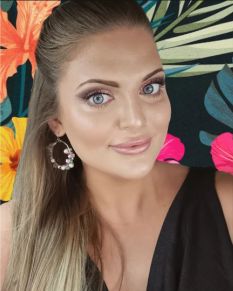Not “every child gets a diagnosis of Autism these days” – the view many parents have on an ASD diagnosis and how it’s not helping their child
A phrase I unfortunately come across all too often in my work with children is, “Oh, every child is just given a diagnosis these days, in my day you just got on with it.”
You see, I have a passion for working with people on the Autism Spectrum as well as their families. I particularly enjoy helping children and adolescents learn to function better by understanding how to navigate social situations. With this passion of mine, often comes along a parent or caregiver who may not want to accept their child’s diagnosis and may believe “a big deal” is being made from nothing.
Accepting any diagnosis that is going to have lifelong repercussions can be exceptionally difficult. Parents/caregivers can sometimes go through a “mourning” period for the child they believed they had.
Facts about Autism Spectrum Disorder
What is ASD?
“Autism spectrum disorder (ASD) is a complex developmental condition involving persistent challenges with social communication, restricted interests, and repetitive behaviour. While autism is considered a lifelong disorder, the degree of impairment in functioning because of these challenges varies between individuals with autism.” – American Psychiatric Association
At times, symptoms can be noticed by age 1, however, consistent symptoms are usually present by age 3-4 years. According to the DSM-5, ASD is now rated in levels 1-3. With 1 being the most high functioning, and level 3 individuals requiring the most assistance to live their daily lives.
How many people have this diagnosis?
According to the Autism society, over 1% of the global population has a diagnosis of ASD. This number has risen between 6%-15% each year between 2002 and 2010. This may explain why so many people are reluctant to believe their loved one now has this disorder or may look to outside sources to explain this “spike in cases” such as medications or vaccines.
The misconception that “everyone now has autism:”
There are multiple factors I believe that have led people to believe this myth:
- Increasing awareness regarding ASD and improving people’s understanding of the disorder has helped to improve monitoring and detection by caregivers of the early signs of Autism. For instance, a parent may notice that their toddler only plays alone and may raise this as a concern with her Paediatrician, rather than just assuming he is “shy.” Both parents and professionals are now more actively seeking referral for Autism assessment.
- The definitions of Autism Spectrum Disorder have evolved over time as more research has been done. In today’s day and age, we simply have better ways to assess and accurately diagnose ASD.
- A more comprehensive range of symptoms and characteristics are now recognised as falling within the Autism Spectrum. Therefore, it is likely that if people were judged previously using today’s criteria, they would likely have received an ASD diagnosis back then.
Why early intervention is so important:
For any child who has ASD or even a suspected ASD diagnosis, early intervention is crucial as it is a developmental disorder. Going back and slowly achieving milestones can be exceptionally important to the child later on, and will not allow them to fall so easily behind same age peers. If social skills can be worked at from a young age, when other children are navigating social situations too, this deficit may not be as noticeable later on.
Why denying the diagnosis is not helping:
Most parents want their children to grow up, succeed, and most of all, be happy. When receiving a diagnosis such as ASD, it may feel as though those dreams for your child will no longer be a possibility and this can be a hard pill to swallow as a parent. However, children with Autism can thrive in their own ways when given the opportunity to show you what they enjoy, perhaps share their “special interest” or build something physical. This is not to perpetuate the myth that everyone with ASD has some sort of “superpower” but rather to express that ASD may make life more difficult at times but it is still a life worth living in a meaningful way. The sooner this is understood by the child’s caregivers, the sooner they can start to learn and develop in an environment that is designed to help them succeed and hopefully one day become independent.
I strive to not only work with the child and adolescent who may have received the diagnosis, but to help the parents/caregivers understand that this is not a diagnosis that is ever handed out lightly and that a complete battery of tests has to be completed by multiple stakeholders in the child’s life. I then aim to provide a safe space to come to terms with the news and explore and express any anger, grief or even possible relief they may be feeling and how moving forward may look for their family.
 Author: Lauren Otto, MA Clinical Psychology
Author: Lauren Otto, MA Clinical Psychology
Lauren Otto is a Clinical Psychologist who primarily works with children, adolescents and adults. She has experience in many fields including emotion regulation and adjustment difficulties, as well as living with chronic pain. Her warm, non-judgemental yet practical approach to therapy fosters a positive relationship whilst allowing them to achieve their goals. Lauren also has a particular interest in Autism Spectrum Disorder.
To make an appointment try Online Booking. Alternatively, you can call Vision Psychology Brisbane on (07) 3088 5422 or M1 Psychology Brisbane on (07) 3067 9129
References:
- Autism Early Intervention | Autism Awareness Australia. Autismawareness.com.au. (2022). Retrieved 24 January 2022, from https://www.autismawareness.com.au/therapies/early-
- Autism Statistics & Rates in 2020. The Elemy Learning Studio. (2022). Retrieved 24 January 2022, from https://www.elemy.com/studio/autism/statistics-and-rates/.
- What Is Autism Spectrum Disorder?. Psychiatry.org. (2022). Retrieved 24 January 2022, from https://www.psychiatry.org/patients-families/autism/what-is-autism-spectrum-disorder.intervention.